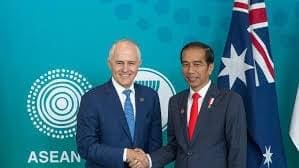The Northern India Textile Mills’ Association, popularly known as NITMA is an apex association of North India serving the interest of textile units. All the large textile mills in the Northe rn part of India are associated with NITMA and the combined turnover of its members is approximately 50,000 Crores (USD 8 Billion). It was formed in 1958 and represents industry for all policy matters and disseminates information apart from conducting conf erences, exhibitions, seminars & workshops.
Currently, the mills are in huge trouble due to FTA agreements with Indonesia & Vietnam.
- The finished product of the mills, that is, polyester yarn is included in the list of items being cleared with SAFTA/AIFTA certificate @ ZERO
- Whereas the raw material for this product, that is, polyester staple fibre (PSF) is not included in this list & hence cleared at full duty rate of 5%. As a result of this combined with the fact that PSF production is controlled in India largely by Reliance Industries (accouting for more than 50% of the total production), the domestic prices of PSF are calculated taking into account the landed rate of PSF from Indonesia.
- Besides, Reliance Industries Ltd has successfully made the case for imposition of anti -dumping duties on the raw material of PSF that is Purified Terephthalic Acid (PTA). As Reliance itself is the largest producer of PTA in India, it benefits immensely from this & is able to pass on the effect of this anti-dumping duty in the domestic price of PTA which in turn makes the price of PSF even
- Pre-GST, there used to be some protection against the influx of imports under these FTA’s as imported yarns were subject to CENVAT @ 12% & a special additiona l duty (SAD) of 4% whereas the domestic yarn was exempt from Only PSF was subject to CENVAT. Therefore, domestic yarn had the benefit of 12% CENVAT on the value added component during yarn production as well as the benefit of 4% SAD. This was suffi cient to protect against the clearance @ ZERO duty under FTA’s.
- However, post-GST, with the removal of CENVAT & SAD, polyester yarn is being cleared at ZERO
- This has led to ASTRONOMICAL increase in the quantity of imported yarn being imported from these countries which can be seen in below
| Period | Imports from Indonesia
(in Tons) |
Imports from Vietnam
(in Tons) |
Total from these 2
countries (in Tons) |
| 1st July, 2015 to
30th June, 2016 |
7,111 | 370 | 7,481 |
| 1st July, 2016 to
30th June, 2017 |
6,243 | 543 | 6,786 |
| 1st July, 2017 to
30th June, 2018 |
22,470 | 1,002 | 23,472 |
| 1st July, 2018 to
30th June, 2019 |
25,360 | 2,283 | 27,643 |
| Period | Total from these 2 countries (in Tons) |
| Month of July, 2019 | 6,000 |
| Month of August, 2019 | 4,800 |
- The average total monthly import from these 2 countries in the PRE -GST period was 6,786 tons/12, that is, 565 From the above table, we can see that the average monthly import in the last 2 month period has been 6,000+4,800/2 = 5,400 tons which is an increase of 4,835 tons per month in % terms being a whopping 855% increase in quantity in a period of just 26 months. (If we extrapolate this trend, imports will reach 50,000 tons per month or 600,000 tons per year by October, 2021 valued at $1.02 billion per year)
- The size of the spinning mills in Indonesia are huge & if left unchecked, this figure will surely increase threatening the survival of not just the North Indian textile mills but of textile mills al l over the
- Sir, the domestic MMF industry must clock doub le digit growth rates if India is to achieve its goal of being a $5 trillion economy in
NITMA propose following steps to be taken by the ministry of Commerce urgently:
- By increasing the Basic Custom Duty on Polyester Yarns (55092100) from the current level of 5% to 10%.
- By modifying the FTA’s to exclude this item from the list of items that are being cleared at ZERO duty in India or alternatively by including the raw materials of the yarn, that is PSF & PTA in this list so that domestic textile mills get a level playing
Efforts of present govt. have resulted in the first ever review of the FTA’s with the ASEAN countries has given us hope that you can protect the domestic mills from this extremely unjust trade imbalance which is also resulting in huge loss to the exchequer by giving an advantage to the importers rather than the domestic manufacturers.

